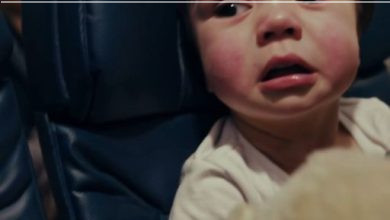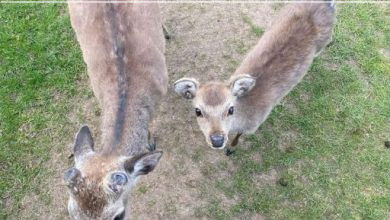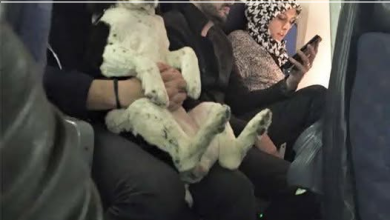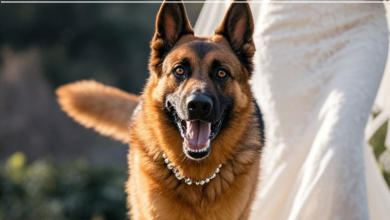SHE APPROACHED THE POLICE OFFICERS HOLDING HER FREEZER POP—AND PASSED THEM A NOTE FROM HER MOM
The sun blazed down on a nearly 90-degree day as families gathered for a neighborhood block party. Music played, food trucks lined the street, and a sagging bounce house struggled to stay upright—just your average summer scene. I was working the community outreach table with two fellow officers, trying to keep things low-key. After all, most folks don’t want to see cops unless something’s gone wrong.
That’s when a little girl approached us. She couldn’t have been more than three or four.
In one hand, she held a melting blue freezer pop. In the other, a folded note.
She didn’t speak. Just looked up at us, blinked, and handed over the paper.
One of the officers chuckled, assuming it was a child’s drawing or a thank-you message.
But when I opened it, the atmosphere shifted instantly.
It wasn’t her writing.
It was from her mom.
The note was messy, hastily scribbled, but painfully clear. Her mother said she couldn’t take care of her daughter anymore. No food. No safety. Nowhere to turn. She’d brought her to the block party because it was the only place she could think of where someone might notice her without calling Child Protective Services immediately.
She hoped someone in uniform would help.
I looked around, scanning the crowd, but saw no one watching us. The little girl quietly licked her freezer pop, unaware of how heavy the moment had just become.
Then the officer next to me murmured, “Check the bottom.”
And there it was—words that hit like a punch to the gut: “Her name is Lila. She likes dinosaurs and pancakes.”
We froze. Surrounded by music, laughter, and sunshine, this child had just been handed over to strangers in uniforms—because her mother felt it was the only way to protect her.
“What do we do?” asked Officer Ramirez softly. He was new to the job, not yet used to the moments that don’t come with a handbook. But I’d been through enough to know—sometimes, you have to lead with instinct and heart.
I knelt to Lila’s level. She looked at me, calm and curious. “Hi there,” I said gently. “Do you know why your mommy gave us this note?”
She shook her head and kept eating her freezer pop, blue syrup streaking her fingers. It broke my heart. She should’ve been playing, not dealing with abandonment.
While Ramirez called it in, I stayed with Lila, cleaned her sticky hands, and offered her a seat. She climbed into the chair beside me, gripping the half-melted treat like it was her anchor.
I made small talk to ease the moment. “So… you like dinosaurs? Got a favorite?”
“T-Rex,” she replied softly. “He’s strong.”
“He sure is,” I said, smiling. “Strongest one there is.”
For a second, it almost felt normal. Then a woman in business attire approached—clipboard in hand. Social services had arrived.
The rest of the day blurred. Lila was placed in emergency foster care with a kind local couple. Meanwhile, Ramirez and I started investigating. Who was her mom? Why had she done this? Where was she now?
No one at the block party knew the girl, suggesting her mother hadn’t come from the neighborhood. We checked shelters and hospitals, but came up empty. It became clear: this had been carefully planned.
Days passed. Then weeks. Still, I couldn’t forget the quiet bravery of that little girl, trusting us to help.
Then one evening, Ramirez burst into the precinct, eyes bright. “I found her!” he announced. “Lila’s mom!”
She’d been living in her car, moving from parking lot to parking lot. After dropping off Lila, she’d gone to a clinic seeking mental health support. But the system was slow, and she was out of options. Her name was Marisol.
When we finally met her, she looked utterly worn down—but determined. She told us everything: how she’d lost her job during the pandemic, how her family had turned their backs, how she’d gone hungry to feed Lila. And how she cried herself to sleep wondering if she’d done the right thing.
“I just wanted her to be okay,” she said, tears rolling down her face. “Even if it meant she couldn’t be with me.”
But instead of taking Lila away forever, social services offered another path—a support plan. Therapy. Job training. Housing assistance. During that time, Lila would stay with her foster family, visiting Marisol regularly.
At first, Marisol couldn’t believe it. “Why would anyone help me?” she asked. “I gave up on my daughter.”
“You didn’t give up,” I told her. “You had the courage to ask for help. That’s love.”
Over the next few months, Marisol worked harder than anyone I’ve seen. She started therapy, got a part-time job at a diner, and moved into stable housing. Lila visited her every weekend, their bond slowly growing stronger. And when the trial period ended—Marisol was ready. She brought her daughter home.
A year later, I was invited to Lila’s fifth birthday party.
She spotted me the moment I walked in, ran straight into my arms, and hugged me tight. “You saved me!” she said, holding up a balloon shaped like a T-Rex.
I smiled and knelt beside her. “No, sweetheart. Your mom did. She’s the real hero.”
Across the room, Marisol smiled, holding a plate of pancakes—topped with dinosaur-shaped sprinkles.
And for the first time since I’d met her, she looked truly happy.
Here’s what I learned: Love doesn’t mean having it all together. It means showing up. It means asking for help when you’re at your breaking point. And it means believing that even in the hardest moments—there’s still a way forward.
If this story moved you, share it with someone who needs a little hope today. ❤️




